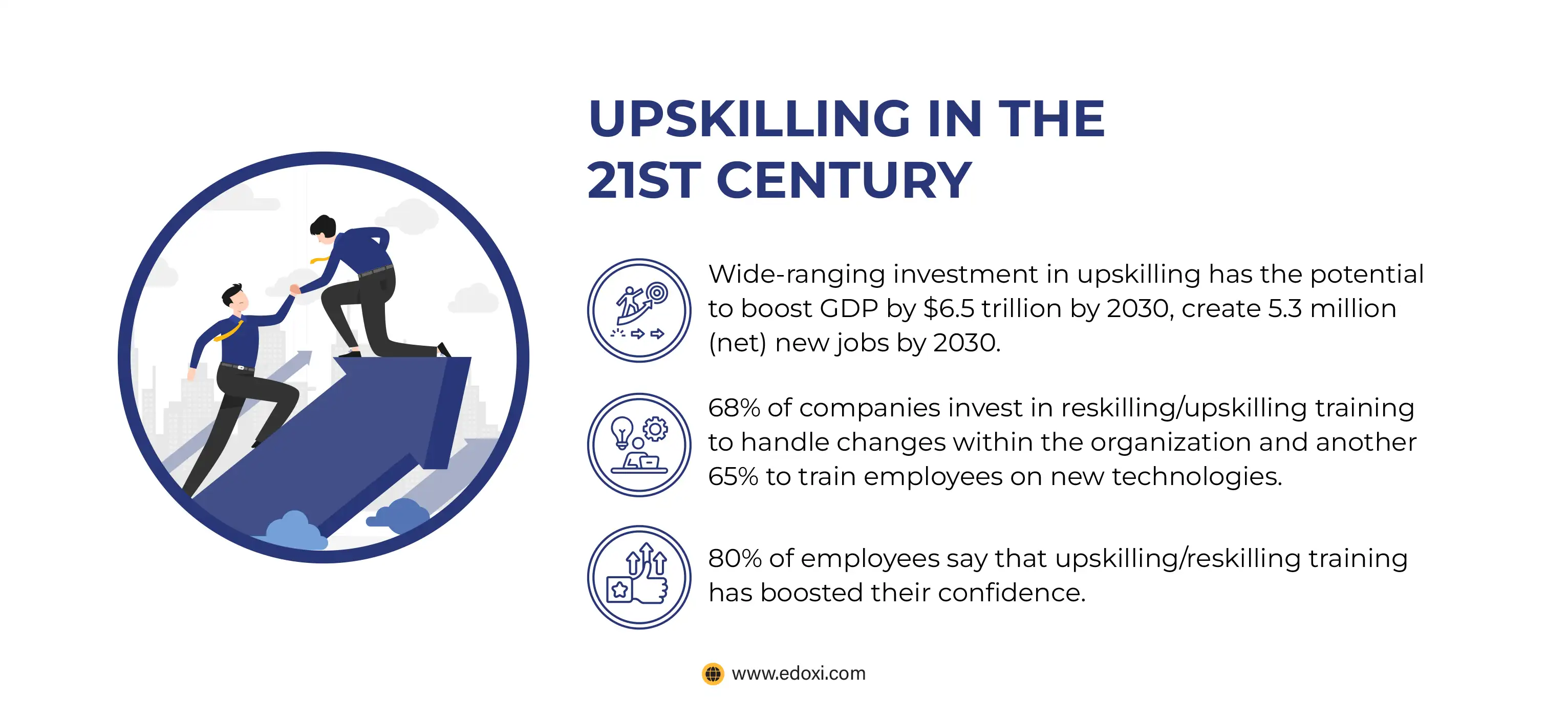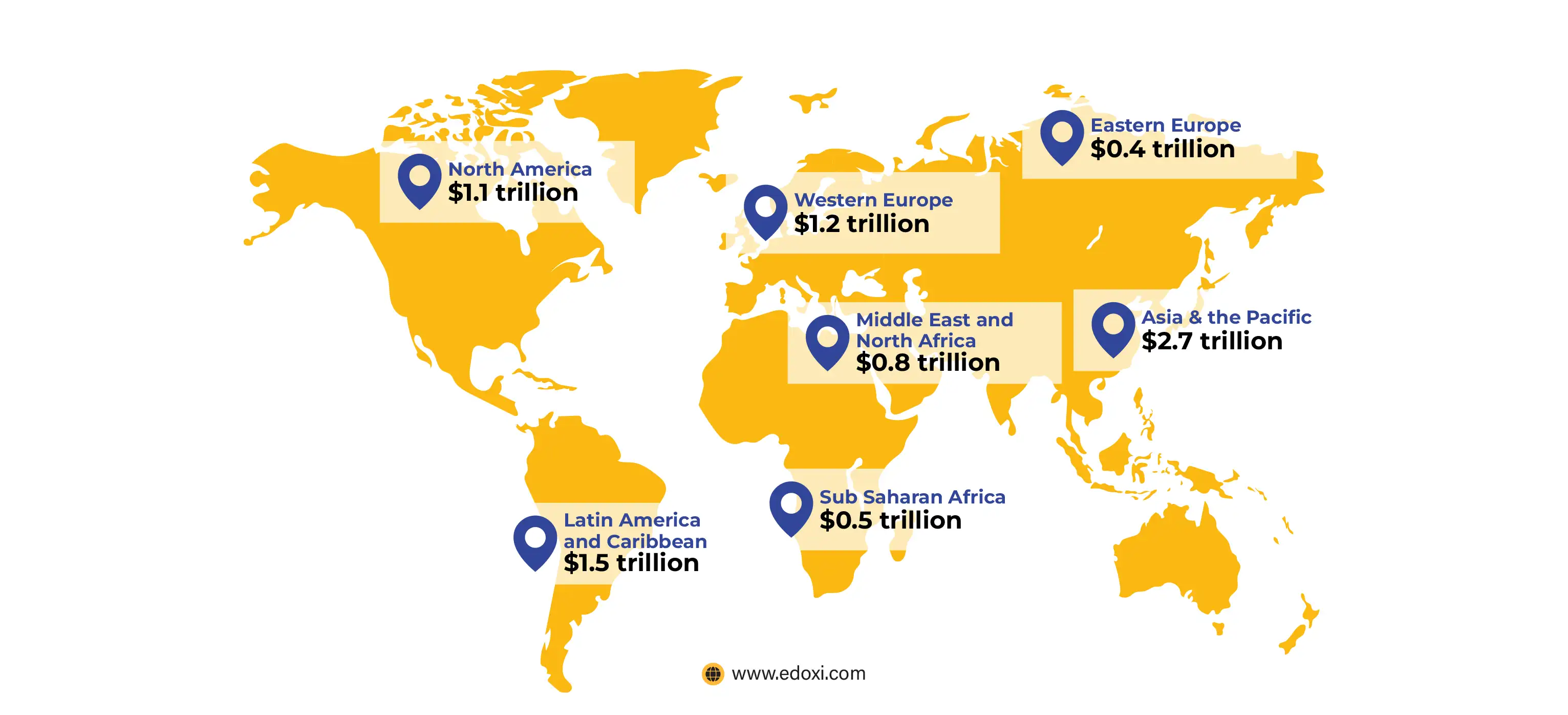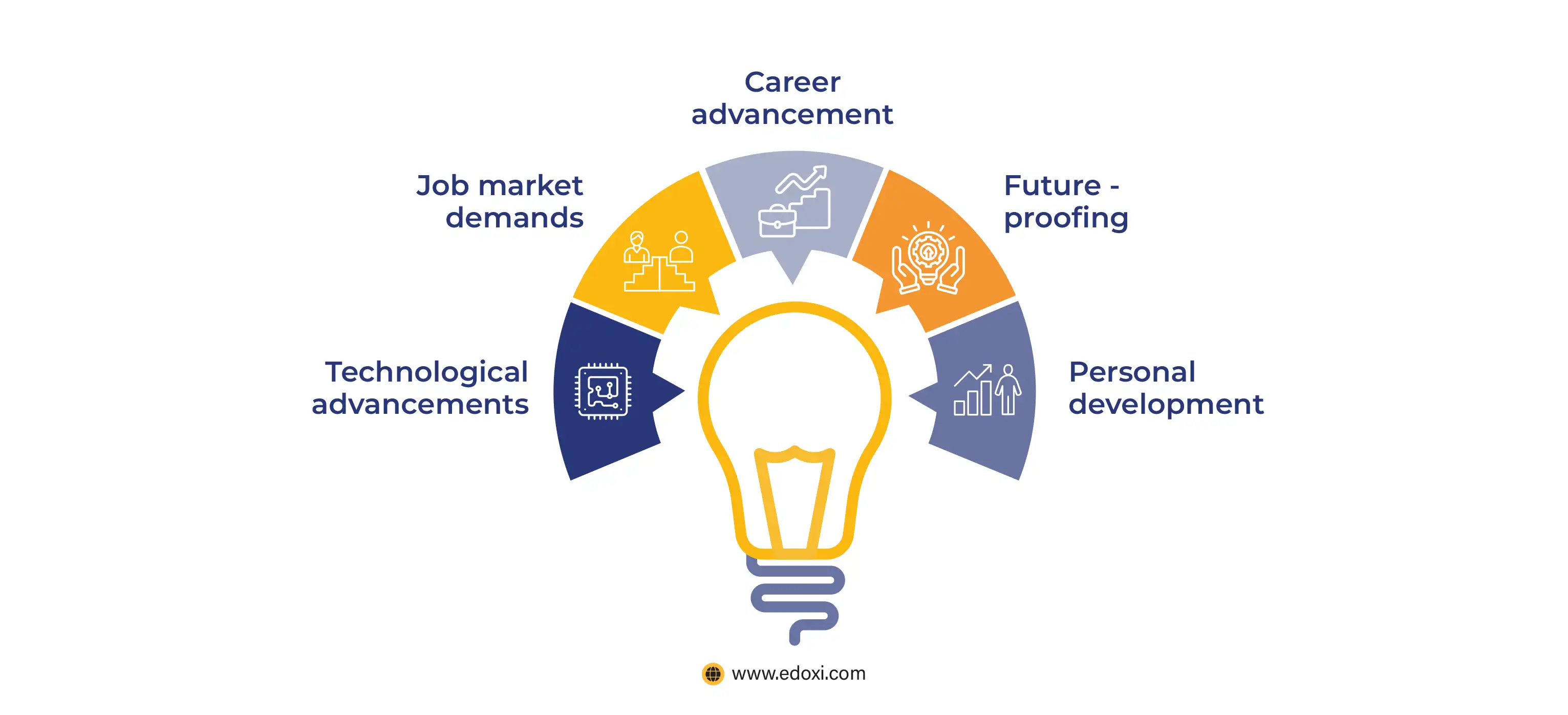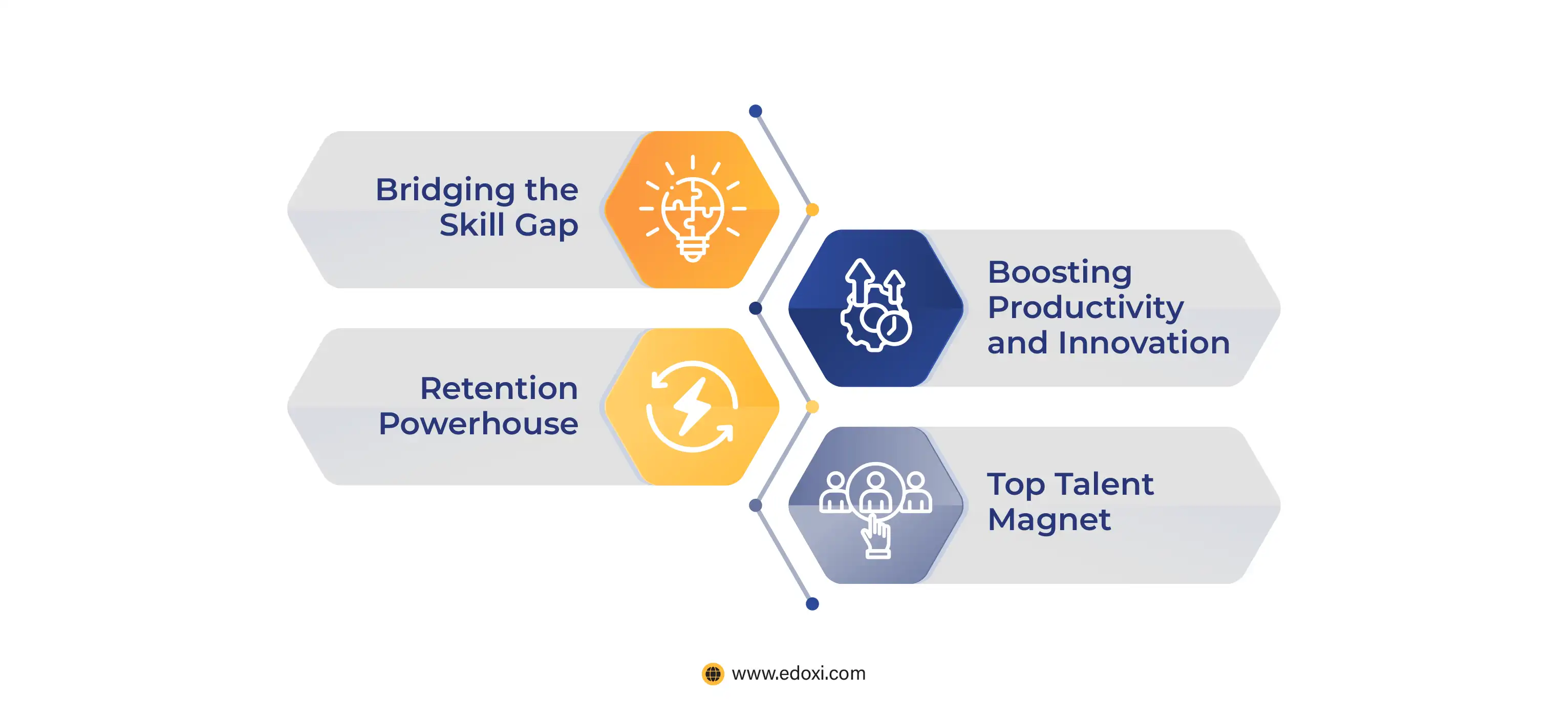 Julie Archer
Jun 25, 2024
Julie Archer
Jun 25, 2024
.webp)
In today's dynamic job market, characterized by rapid technological advancements, the ability to continuously develop one's skillset is paramount. Upskilling is the strategic acquisition of new and relevant competencies, empowering individuals to navigate this ever-evolving landscape. It involves applying additional education or training to expand and develop current skills. Whether through free online courses to enhance analytical abilities or management workshops to bolster leadership skills, upskilling is a proactive approach to personal and professional growth.
The world job landscape is undergoing a rapid transformation. With the advent of technological advancements like AI and automation, upskilling has become crucial to stay relevant for both individuals and organisations. The BCG (Boston Consulting Group, Inc.) company reports that; 50% of the global population needs new skills to meet shifts in demand driven by new technologies, a figure expected to reach 90% by 2030. The Future of Jobs Report highlights the importance of upskilling in times of economic uncertainty and advancing artificial intelligence, with approximately 23% of all jobs worldwide set to transform within the next five years. According to TALENTLMS research statistics on upskilling/reskilling 91% of companies and 81% of employees say upskilling/reskilling training has boosted productivity at work.

In today's rapidly evolving workplace, upskilling has become a crucial strategy for both individuals and organizations. With automation and AI reshaping traditional job roles, a significant skills gap has emerged, making it challenging for companies to find suitable talent. Recognizing this need, major corporations like Amazon and PwC have already initiated upskilling programs to equip their workforce with the necessary competencies.
According to the U.S. Chamber of Commerce Foundation, 74% of hiring managers in the Modern Talent Market place acknowledge this skills gap, highlighting the urgency of upskilling initiatives. Bhavesh Goswami, Founder and CEO of CloudThat, emphasizes the necessity for organizations to invest in upskilling their existing workforce, citing the limitations of continuously hiring new talent. In essence, upskilling emerges as a proactive approach to addressing talent shortages and integrating digital innovations into the fabric of modern work routines.Check out the Top Upskilling Courses to Boost Your Career
The Fourth Industrial Revolution is creating demand for millions of new jobs, which can be incredibly fulfilling and help people reach their full potential. However, it's important to note that the current trend remains one of unequal opportunity, job displacement, and increasing inequality. In the current job market, around half of the global labour force may require reskilling by 2025 to keep up with these changes in the job market. The World Economic Forum states that ‘Accelerated Progress on better education and upskilling could add $8.3 trillion to global GDP by 2030’.

To stay competitive and relevant, upskilling your workforce is no longer a luxury, it's a necessity. Here's why upskilling is critical for both employees and employers:

According to the latest LinkedIn Workplace Learning Report, companies that prioritize upskilling initiatives see significant benefits in terms of growth, development, and employee retention. Investing in your workforce through upskilling with corporate training programs is an investment in the future of your organization. It creates a dynamic and future-ready team that can effectively navigate the challenges and opportunities of the ever-evolving business landscape.
Tips For Successful Upskilling Programs
By prioritizing upskilling, you can empower your employees, strengthen your organization, and achieve sustainable success in today's dynamic job market.
Read on: Benefits of Upskilling for Employees
The modern job market thrives on continuous learning. Upskilling equips you with the tools to navigate this dynamic landscape and unlock exciting career possibilities. Here's your roadmap to becoming an upskilling champion:

Bonus Tip
Strategies for Business Upskilling
The ever-evolving landscape of work demands a commitment to lifelong learning. By embracing upskilling, individuals unlock doors to career advancement, higher earning potential, and the satisfaction of mastering new challenges. Businesses that prioritize upskilling cultivate a future-proof workforce, fostering innovation, boosting productivity, and attracting top talent. So, take charge of your career or empower your team – the journey of upskilling starts today.

Chief Consultant Corporate Trainer
Julie Archer is a Corporate Training Professional with more than 15 years of experience in training and development. Hailing from Newcastle, United Kingdom, Ms. Archer established her authority in the field of corporate training and business skills development in the UAE and now with Edoxi Training Institute in Dubai. She has critical exposure in designing and delivering training programs for the top business organisations in Dubai. Her drive to transform employees and contribute to their company is the secret behind her excellence in this profession. To make a positive change in the lives of people is what she finds most fascinating about her job.
She enjoys the challenges that come with building a vibrant and efficient workforce. Her rich knowledge in the domain comes to the rescue when situations prove to be demanding. She commits much of her efforts to transforming education spaces into smart learning environments.